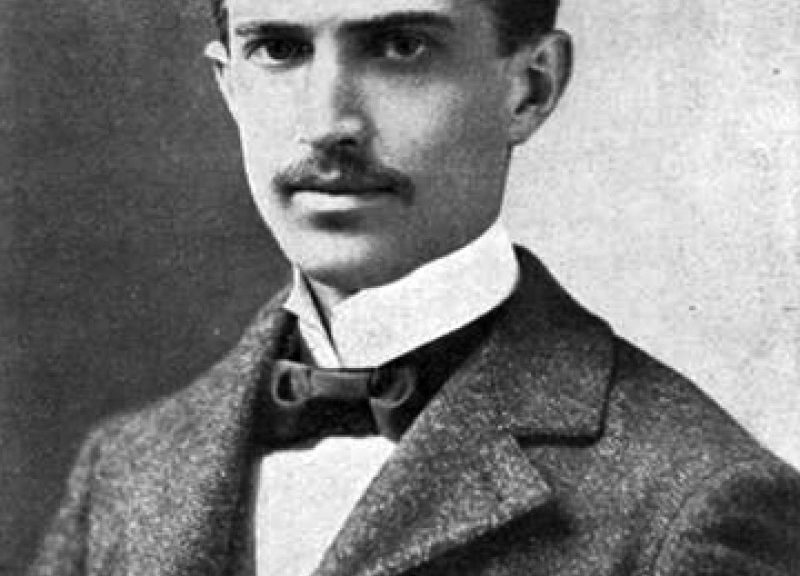STEPHEN CRANE, American novelist, born (d: 1900); American novelist, poet and journalist, best known for the novel Red Badge of Courage. He died at age 28 in Badenweiler, Baden, Germany. Had he lived beyond the mere 28 years allowed him, Crane would undoubtedly become the greatest American novelist of his day. As it is, he produced two fine books well in advance of his years, Maggie: A Girl of the Streets (1893) and The Red Badge of Courage (1895).
Obsessed with urban street life, Crane left behind an unpublished novel, Flowers of Asphalt, a realistic portrayal of a Gay male prostitute at the turn of the century. No one knows what became of the manuscript or who destroyed it. The reason why it disappeared is much more certain. The trial of Oscar Wilde, only five years before Crane’s untimely death, drove the subject underground for more than a generation. A 1951 film by the same name, is seen as an allegory for a young Gay man’s coming out, with the handsome (and usually shirtless) son getting ready to leave the house, despite the disapproving gaze of his mother and father.
The film’s climax takes place in the woods, with the young man dressed in Japanese garb and participating in an unexplained, homoerotic initiation ceremony, carrying a long candle and kneeling before an older man. The film’s title is taken from the name of a legendary lost manuscript by the 19th century American writer Stephen Crane, which dealt with the then-taboo subject of boy prostitution. In 2007 Edmund White published the novel Hotel de Dream, based on the 40-page novella fragment on a boy prostitute (based on a story from the memoirs of a Crane friend, James Gibbons Huneker).
